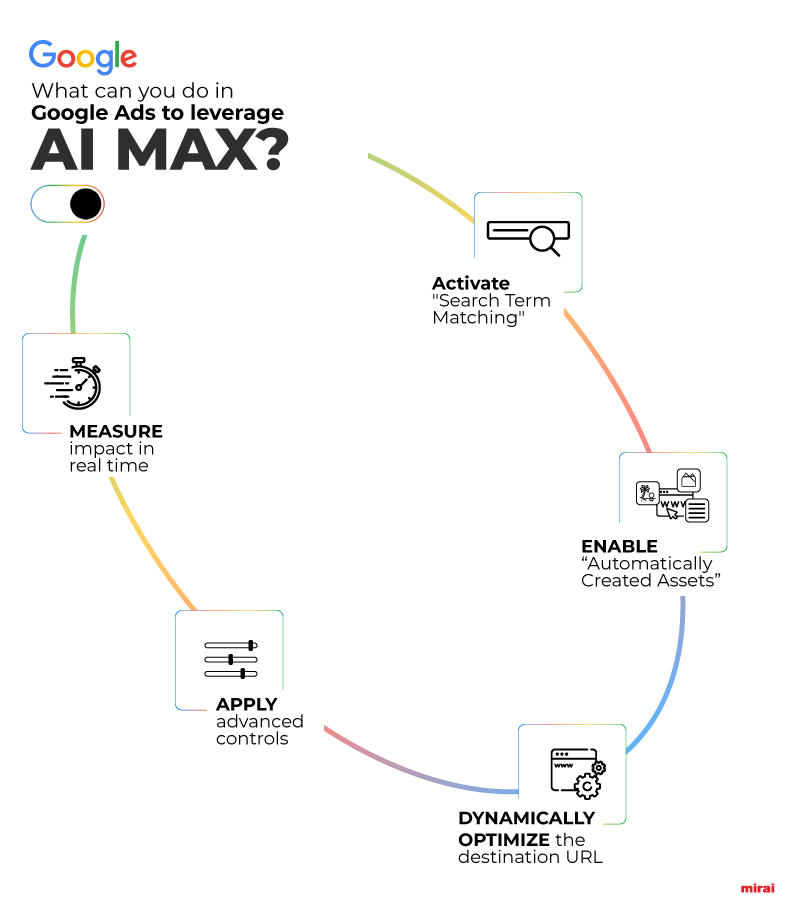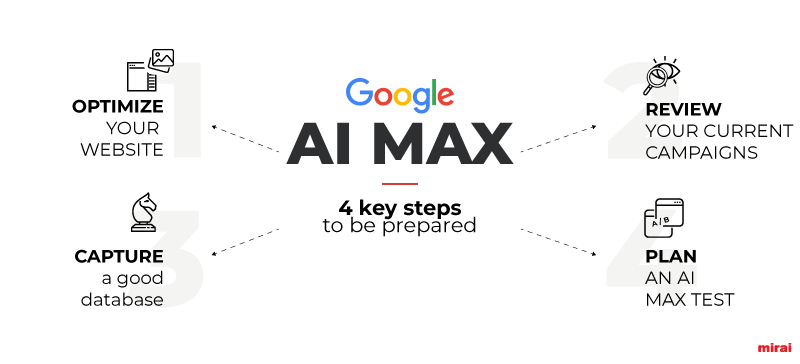En español, en français, em português.
If you work in digital marketing for hotels and haven’t yet heard about AI Max for search campaigns in Google Ads, now is the time to open your eyes. What we’re about to witness marks a before-and-after moment in how travelers search, choose, and book their next destination. In this post, we’ll break down this paradigm shift and what you can do to leverage it in your primary advertising channel.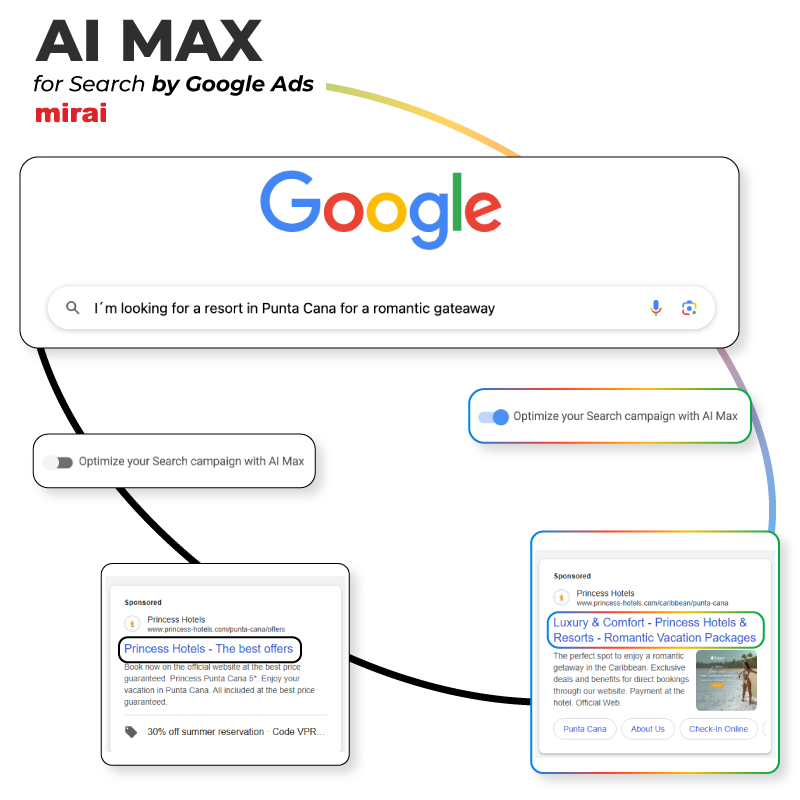
The change in Google Ads has already begun
Travelers’ online behavior is evolving at an unprecedented pace. Future guests no longer just search for “hotel in London,” now they say things like:
- “Hotel near a quiet beach for families with breakfast included”
- “Accommodation with spa and romantic dinner in Chelsea”
- “Place with coworking, good coffee, and views in Notting Hill”
And most importantly: they do it via voice, image, text, or even AI-driven conversational queries.
Google has detected that 1 in 4 visual searches have commercial intent, and long-tail searches (5+ words) are growing 1.5 times faster than short ones. Understanding exactly what the user wants has never been more critical, and this goes beyond search intent to even capturing the emotional tone of the person looking for a hotel.
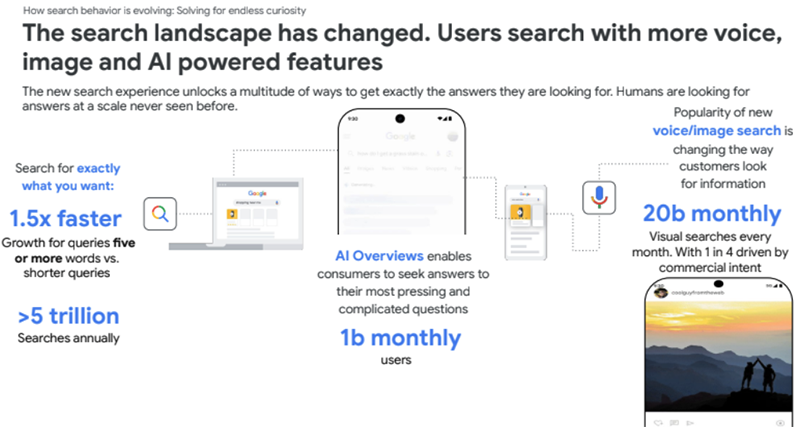
What is AI Max and why does it change everything?
AI Max is a Google Ads search campaign setting designed to find, attract, and convert customers with unmatched relevance. It uses AI to:
- Interpret the intent behind every search (even without exact keyword matches)
- Automatically generate ad copy tailored to each user’s query
- Select the landing page from your site to redirect the user, not just one, but the best for each individual, in real time.
All while giving you controls and reporting to keep steering your strategy.
What can you do in Google Ads to leverage AI Max?
Google Ads is evolving with AI Max to offer new features you can activate directly within the platform. It’s not a separate tool, but an advanced setting within your Smart Bidding search campaigns. New AI Max–related features in Google Ads:
1. Activate “Search Term Matching” (matching without keywords)
Until now, Google Ads Smart campaigns have relied on broad-match keywords. This means you cover searches that don’t interest you at first, but after 5–6 weeks, the algorithm filters with proven efficiency those searches close to the set goal (e.g., maximize conversion value).
What will happen now?
– Keywords are now even broader, allowing you to reach users even if they don’t use your exact terms.
- Find users even if they do not type exactly your keywords.
- The algorithm will rely on intent, search history, context, location, etc.
- You’ll capture long, spontaneous, personalized queries, like voice searches.
2. Activate “Automatically Created Assets” (Auto-Generated Ads)
Currently, Google Ads already had an option where AI automated the use of extensions (site links based on web pages, automatic call extensions, price extensions, etc.) based on the content it found on the pages under your domain and when it predicted it could improve ad performance.
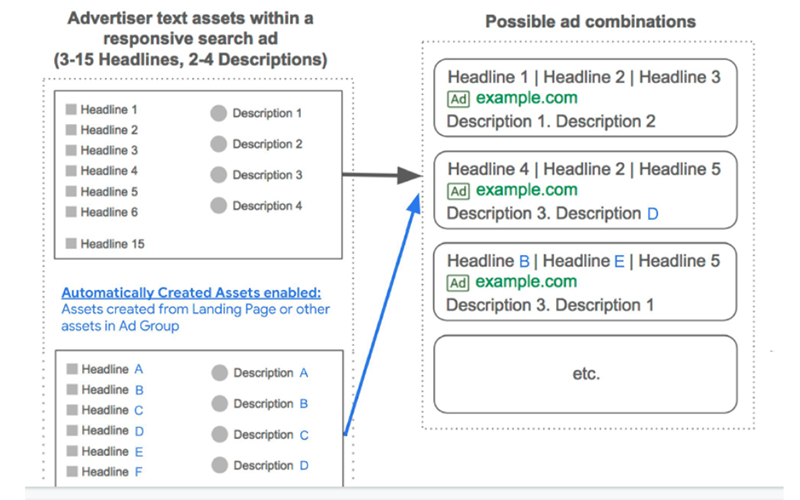
What will happen now?
- AI generates headlines and descriptions from your landing page and existing content.
- But now, it also uses generative AI to adapt messages to the user’s exact moment.
- It customizes each search with personalized creativity based on the user’s previous experience.
3. Dynamically optimize the destination URL.
Currently, you’re required to use the same domain and set which page or URL each ad or extension will go to.
What will happen now?
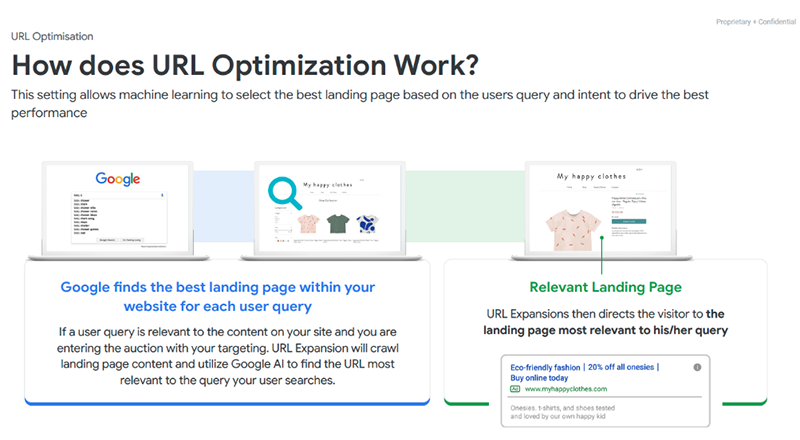
- With AI Max, Google automatically chooses the best page on your website for each search.
- Reduces friction: users land exactly where they can find what they’re looking for.
- You can use exclusion rules to avoid irrelevant pages.
4. Apply advanced controls.
Currently, the coexistence between search campaigns and PMax introduced a new way to negative-match search terms thanks to brand lists.
What will happen now?
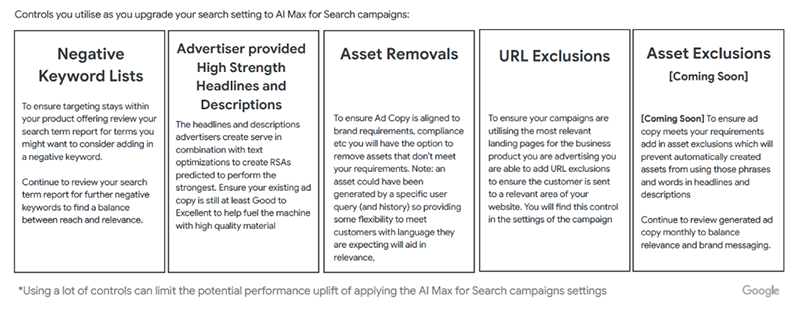
It continues this logic to preserve harmony between campaign types with:
- Negative keyword lists.
- Specific URL exclusions.
- Brand controls (e.g., limiting or avoiding traffic to your own brand).
- Performance reports at the level of search terms, landing pages, and generated assets.
5. Measure impact in real time.
Currently, in AI-driven campaigns like PMax, there has been a layer of opacity that made it hard to see detailed results and make changes.
What will happen now?
The new AI Max framework promises to show results faster, detect changes, attribute accurately, display smart insights and project results. Among the most interesting analytics functions, you’ll be able to see:
- Which search terms triggered ads.
- Which copy was generated and which URLs were used.
- How these elements affect conversions.
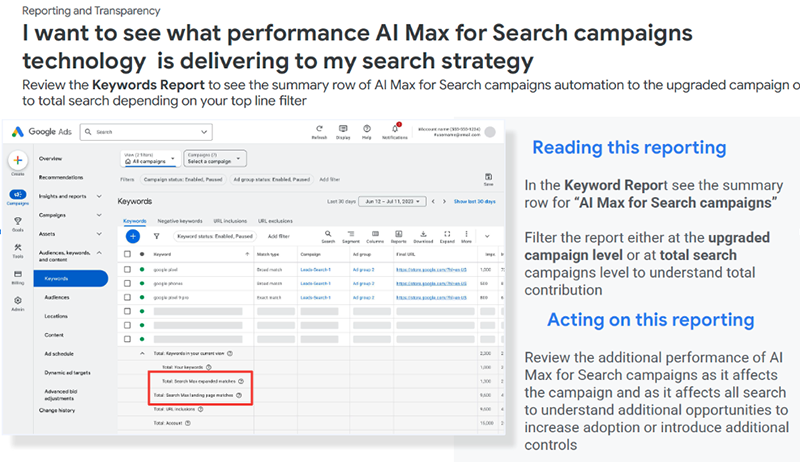
Important: To start testing these new features, you just need to activate them in the campaign settings. No new structure or advanced technical knowledge is required.
What does this mean for hotels?
1. It means you will no longer compete just to appear in traditional searches, but to understand traveler intent better than anyone else. If you don’t adapt your campaigns to this new dynamic, other hotels (maybe smaller, but more agile) will overtake you.
For example:
- A boutique hotel with great segmentation might beat a large chain with generic ads.
- A website that clearly explains its services and experience could be favored by the algorithm when directing traffic from AI Max.
2. More budget for your hotel’s brand protection. AI algorithms optimize bids in real time (+28 % efficiency) and reduce irrelevant clicks, but also raise bids in competitive auctions. According to eMarketer, AI-based search ad spending in the U.S. will grow from $1B in 2025 to $26B in 2029, jumping from 1% to 13.6% of total search spend.
3. You’ll achieve better ROAS (Return on Ad Spend). With PMax algorithms, conversions already increased by 18% at the same cost per conversion, and the same or better performance is expected with this new shift.
4 key steps to prepare your hotel’s strategy starting now
AI Max is still in a gradual rollout phase, but the time to prepare is today. Here are 4 key steps to get started:
- Optimize your website: ensure every page has clear, specific, customer-oriented content, not just on-page but also in metadata.
- Review your current campaigns: Do your ads really answer what your potential guests are looking for? Remember, it’s more important to strengthen brand protection before targeting cold traffic unfamiliar with your brand.
- Structure your digital strategy to capture a strong database, preferably through a Loyalty Club that offers benefits to your audience
- Plan an AI Max test: set a pilot budget and track impact through KPIs like conversions, CPA, and ROAS.
Our prediction: hotel marketing will become radically more personalized and hypersegmented
With AI Max, success in Google Ads won’t be defined by who invests the most—but by who best understands traveler intent and optimizes their digital experience.
Hotels that embrace this new wave of smart automation will have an overwhelming competitive advantage. AI isn’t here to replace you, it’s here to empower you, but only if you understand and apply it strategically.
On the other hand, hoteliers who don’t adopt AI Max may still get clicks and conversions from brand protection ads but will miss travelers making unique searches. Plus, they’ll miss the chance to use today’s most advanced AI to show hyper-personalized, more attractive ads to their audience.
Human curiosity has already changed how people search for hotels. With AI Max, Google can now interpret and respond to this new way of researching.
And you, as a proactive hotelier, should too.



